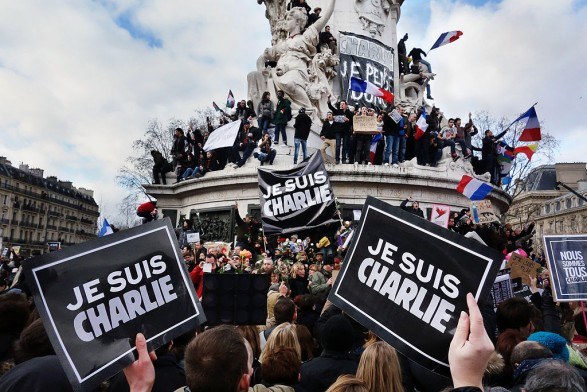In the week since the Charlie Hebdo massacre, articles centered on the clash of Western liberal culture and conservative Muslim culture, Muslim radicalism, even an alleged right to be offended, among others, all ask whether the satirists at Charlie Hebdo worked properly within their protected right to expression or generated dangerous hate speech— that is, speech that moves beyond being merely disrespectful or insulting, and is aimed at inciting hatred against vulnerable groups in society.
But when does protected expression venture into the realm of hate speech, and who should determine when a particular expression qualifies as such? If the decision is left in the hands of those wielding political power, this leaves susceptible groups vulnerable to a speech regime where nothing is deemed hate speech; however, if power to determine the parameters of speech is left to minority groups, censorship could run rampant. Moreover, there is the question of shelf life on expression deemed hateful. Is The Satanic Verses blasphemous hate speech forever?
Perhaps we shouldn’t be unnerved that classifying hate speech may be an inherently murky venture. Any such debate will inevitably rope in defenses of (often contending) values, and this might be the most valuable outcome of the process—a better understanding of why people hold the beliefs that they do, and why they believe certain speech to be hateful (or not).
In turn, this enhanced understanding might offer a key source in preventing future tragedies. Parleys over values may urge satirists to temper their works relating to potentially blasphemous topics, while audiences may be more sensitive to the role satirists play in exercising their freedom of expression in liberal societies.

